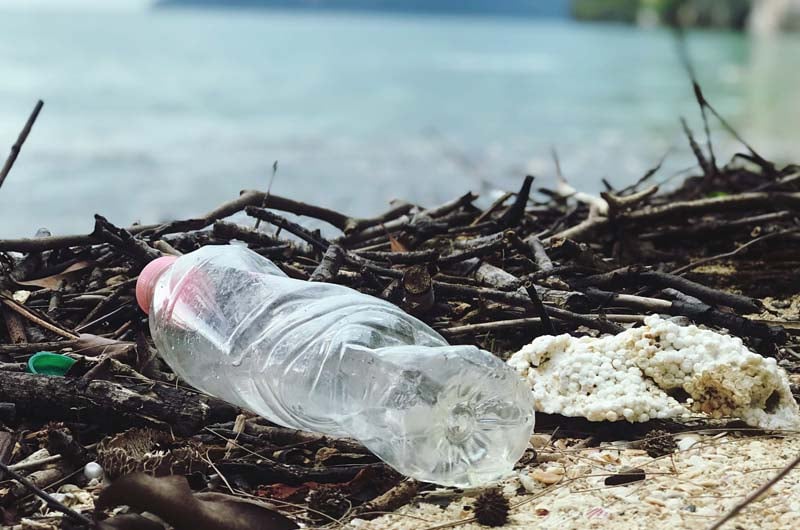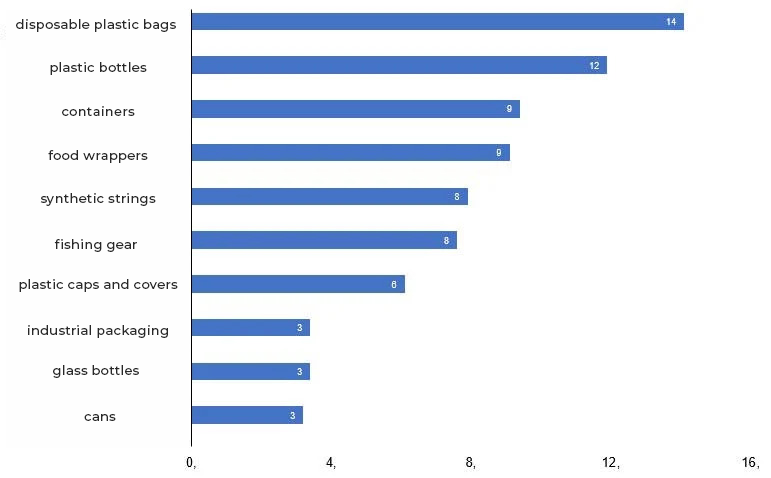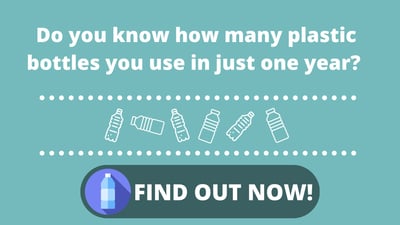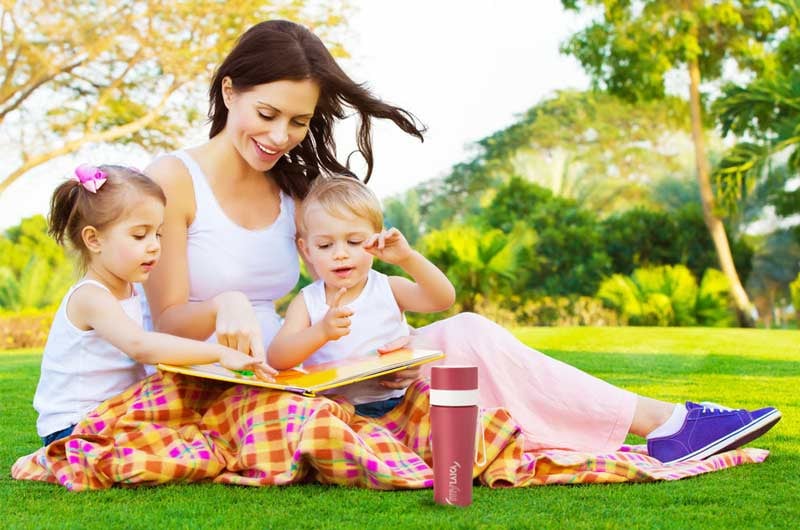The impact of everyday objects on water pollution has been much discussed, and from time to time, the question arises as to which objects end up in the oceans in the largest quantities.
This time, a group of researchers funded by BBVA and the Spanish Ministry of Science published an interesting article in Nature Sustainability, which investigates plastic pollution in the oceans.

The study's conclusion shows that almost half of the waste dispersed at sea that is greater than 3 cm (thus excluding microplastics) falls within the following categories:
- disposable plastic bags 14.1%
- plastic bottles 11.9%
- containers 9.4%
- food wrappers 9.1%
- synthetic string 7.9%
- fishing gear 7.6%
- plastic caps and covers 6.1%
- industrial packaging 3.4%
- glass bottles 3.4%
- cans 3.2%

Where the waste originates
The same journal also published another study analysing the origin of the rubbish released into the sea by 42 European rivers. Italy, Turkey and the United Kingdom rank in the top three as the largest producers of water-based waste.

What is the solution?
It is clear that plastic pollution can no longer be managed by cleaning up river estuaries and that it is becoming increasingly urgent to take action on the source, thus preventing plastic from reaching the environment through proper waste disposal.
In this respect, some countries are more virtuous than others: the European Union has implemented policies that address both plastic production and disposal, but other countries have not yet legislated in this regard, as is the case for Australia and the United States.
What about individually?

In our daily lives, we play a key role in limiting the release of plastic waste into water. Here are some basic tips for sustainable and environmentally-friendly behaviour:
- Get a filter system to avoid buying disposable plastic water bottles
- Use a reusable carrier and cloth bags for your groceries
- Don't use plastic straws, cutlery and plates
- Avoid buying fruit and vegetables that are already packaged in disposable plastic packaging
- When buying a plastic item, always choose reusable plastic over disposable plastic
- Always carry a water bottle with you so as to avoid buying plastic water bottles on the goù
- Don't throw plastic waste of any kind into the toilet
- Dispose of the plastic you produce correctly according to your local council's instructions

It's your turn, leave your comment!
Get the latest from the Laica blog